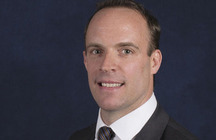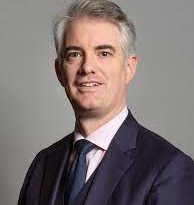Dominic Raab – 2021 Comments on Brexit and Trade Agreements
The text of the comments made by Dominic Raab, the Foreign Secretary, on BBC’s Andrew Marr Show on 14 February 2021.
ANDREW MARR:
Now, I want to talk to you about the results so far of Brexit. There’s been a huge amount of rhetoric and argument on both sides all across the media. I’d like to just focus on a real life actual situation, and somebody called Tony Bowker. He runs a company in Sheffield which imports precision engineered goods from Japan and then exports them to the EU. And under your Brexit deal he says he has to pay duties because of rule of origins requirements. Many of his products now require export licences and every shipment to Europe has gone from costing him zero to costing hundreds of pounds. He has been advised that his best option now is to relocate the majority of his operations from Sheffield to the continent, and he wants to know from you is the government going to change the elements of the Brexit deal which make his business model unviable, or should he move out of the UK?
DOMINIC RAAB:
We certainly want all businesses to stay here. We want to manage the risks regarding exports that you describe. We’ve put a huge amount of money into supporting those businesses. The BBC itself was reporting that in terms of freight the flows of freight, both into the UK and out of the UK, are now back to 99 per cent of the pre-end of transitional period level. So that’s good news.
We talked last time I was on the show about some of the teething problems, and I think on the BBC’s own reporting, based on the data, that’s been to a large extent resolved and we’ll continue to keep a very close eye on that. And of course there are all the wider export opportunities with the rest of the world with the new free trade deals we’re doing. But we have also been clear that there are changes that come with exiting the transition period and what we’re trying to do is support businesses as best we can to manage those.
ANDREW MARR:
50% of the lorries that you’re talking about were empty. We know that too. And in terms of teething trouble, Mr Bowker, like many other businesses, is actually facing an existential challenge. Stay in Sheffield or move to the continent. And unless things change he’s going to have to move, and it’s not just smaller businesses like him. Peter Cowgill, who’s the chairman of JD Sports, a huge business, says: ‘when we had a free trade agreement – we were told we were going to get a free trade agreement, that is really not the case. If you source from the Far
East and bring it into the UK and ship to stores in every country in Europe where tariffs apply, then your business needs to relocate
and find a distribution centre in Europe.’ And if that doesn’t happen, then the employment is going to go from the UK. There are lots of businesses facing real practical, day to day problems right now. What are you going to do for them?
DOMINIC RAAB:
We’re already doing, as I said, a huge amount to support them with advice, with guidance, particularly into mediating things like customs declarations, and we’ve been clear all along that come the end of the transition period there would be changes, and we’ve put a significant amount of money into supporting those businesses. I think it’s also fair to say, for the sake of balance and context, there have also been lots of other businesses investing in the UK because they see the certainty that a free trade deal provides, and/or because they think that the UK is a great source for business because of its own merits. There are also the new opportunities for export that come with breaking down barriers to trade. For example, if you look at the Japanese free trade agreement that we’ve got and its extension into areas like digital and data, a really important area of comparative advantage for the UK. So yes, there’s some change, but we can manage the risks, grasp the opportunities, and I’m very confident overall. We can always take individual cases and I know they all matter, for the businesses and the employers, but overall we’re in an excellent position now to grasp the opportunities of a global Britain out there, particularly investing in the areas of the IndoPacific region, but also maintaining our key trading relations with Europe.
ANDREW MARR:
Well, let’s try and move away from individual businesses to the wider picture. And I don’t deny at all that there will new opportunities for all sorts of businesses going ahead, but the truth is that Boris Johnson promised a deal that you signed would – and I quote – ‘if anything, allow our companies and our exporters to do even more business with our European friends.’ And the truth is that because of all sorts of new paperwork, there are now twenty page export health certificates for vets, there’s the 27-page catch certificate for exporting fish, there’s duties for goods of all kinds which don’t meet rules of origin requirements, and if that is going to make trading with business – with Europe harder and harder and harder, then the common sense conclusion is that people will do less of it.
DOMINIC RAAB:
Well, no. First of all, of course you’re right to say that the EU regulatory requirements, the red tape of the paperwork that they will apply to the UK, the same as they apply to other businesses from other countries around the world, if they ramp that up and they don’t take a sensible smart approach to that of course it will have an impact. It will also have an impact on them. I think if you take a 10-year view as well as looking at the short term risk, which it’s right to do, actually the growth opportunities of the future are going to come from emerging and developing economies around the world, in particular the Indo-Pacific, and having the freedom, the latitude to trade, bespoke Britain-friendly terms and conditions with those growth markets in the future is a huge opportunity, when it comes to jobs, when it comes to
livelihoods, when it comes to startup and to scale up. So you’ve got to look at this in the round, but of course we will want to also manage those short term challenges, and reduce them, mitigate as far as we can the bureaucratic obstacles that the EU is imposing.
ANDREW MARR:
So are you saying in effect we should stop thinking quite so much about Europe and think more about the Far East?
DOMINIC RAAB:
I wouldn’t put it quite in those terms, but it’s certainly right to say we want to bank, if you like, the baseline of our European trade, it’s very important to us and also our neighbours. But if you look at the opportunities and the growth for the future for UK companies, bearing in mind the comparative advantage of our businesses, I think the growth markets and the growth economies are going to come from the Indo-Pacific region and actually if you look at what the EU says, they agree with that analysis, which is why it’s so important we’ve got the latitude to strike the best deals with those economies, which Liz Truss is already now doing, to really maximise the opportunities and that’s the long term sustainable approach.
ANDREW MARR:
Let me turn to one of the most important industries in terms of tax revenue coming in and Britain’s traditional strength which is the City. Now in the week just passed Amsterdam took over London’s leading role in terms of the centre for European equities being dealt with and there are lots of pieces of evidence now, again hard evidence of actual companies moving hundreds of people out of the City and onto the Continent of Europe. And a certain sense that something may have been changing. This may be a fulcrum moment for what has been one of Britain’s great industries and we may be beginning to see the City being eclipsed by the EU. And my point I suppose to you is that really that given that the EU wants to take that business into its own territory we don’t have many levers to, as it were, use against them.
DOMINIC RAAB:
Well I certainly don’t accept the sort of binary zero sum sort of attrition with the EU … What matters to the UK and to the City is the comparative advantage we have in the fundamentals. So for example you were citing Equities, but actually the boss of Barclays has been saying recently how the long term future of the UK and its leadership role is unparalleled, unrivalled. And the crucial question for the EU, it may be able to, if you like, nick a bit of business here or there from the City, but the problem is the measures that they will take to achieve that will undermine their own competitiveness. If I’m really – I think to be really honest about it the challenge to London as the global financial centre around the world will come from Tokyo, New York and other areas rather from those European hubs, particularly if they start to erect barriers to trade and investment.


